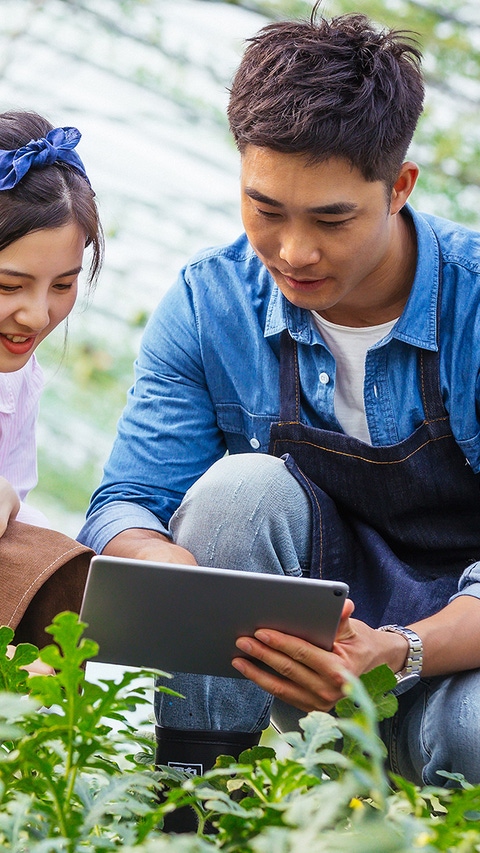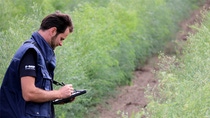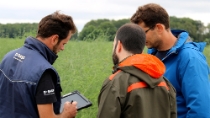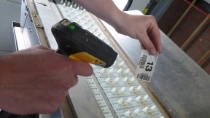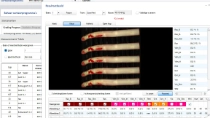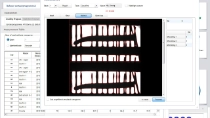Vegetables People Love
Digital phenotyping
Taking Plant Breeding to Another Level
For centuries, breeders have spent much of their time collecting measurements of their plants’ features, or phenotypic data, in order to breed better varieties and, ultimately, produce better food for all of us. Today, technological progress gives them a new tool for this process: Digital Phenotyping. Now, breeders can use Digital Phenotyping to collect more data of higher quality, often even saving time in the process.
For example, the closure of an asparagus tip is a genetically important trait, as open tips collect irremovable sand that makes the spears unsellable. “Even an experienced eye only makes a binary open/closed observation,” points out Bas Vullers, asparagus breeder in Nunhem, the Netherlands. The naked eye simply has its limits. “Our laser-based phenotyping machine uses 40 percent less labor hours to provide detailed imagery and accurately measure key metrics on a 1-100 scale.”
That's the gist of Digital Phenotyping: using technology to measure selected characteristics digitally, resulting in more data, more accuracy, and more consistency in less time. This makes it much easier to identify and genetically improve a specific trait. It also frees up those experienced and knowledgeable breeding teams to apply their expertise to other things that machines can’t do.
Breaking through breeding bottlenecks
“By combining digitalization techniques smartly with experience, market insights, genetics, phytopathology and other disciplines, we can break through classical bottlenecks to take plant breeding to a whole new level,” explains Markus Berns, Digital Phenotyping Team Leader at BASF Vegetable Seeds. “Producing a new variety can take 10-20 generations, during which time the material moves from department to department, even continent to continent. Digital data collection can help ensure traits are measured in the same way from pre-breeding right through to seed production.”
Benefits beyond breeding
In the end, what benefits the seed company, will also benefit growers and consumers. Creating varieties with traits that consumers value, such as taste, shelf life, or the right look and feel like shininess and color, can boost business for retailers. Traits like yield and resistance are important to growers and sustainability offers benefits throughout the value chain. And what’s more, the information collected through digital phenotyping offers growers the data-driven proof they now expect before they’ll commit to a new variety.
That is why BASF Vegetable Seeds is investing in Digital Phenotyping. This cutting-edge approach is an important tool to help deliver improvements in both agronomic and qualitative traits, as well as collaboration opportunities with partners throughout the value chain. Digital Phenotyping is just one way that we make the most of cutting-edge technology combined with the best of breeding and growing expertise to create better fruit and vegetables for everyone.
